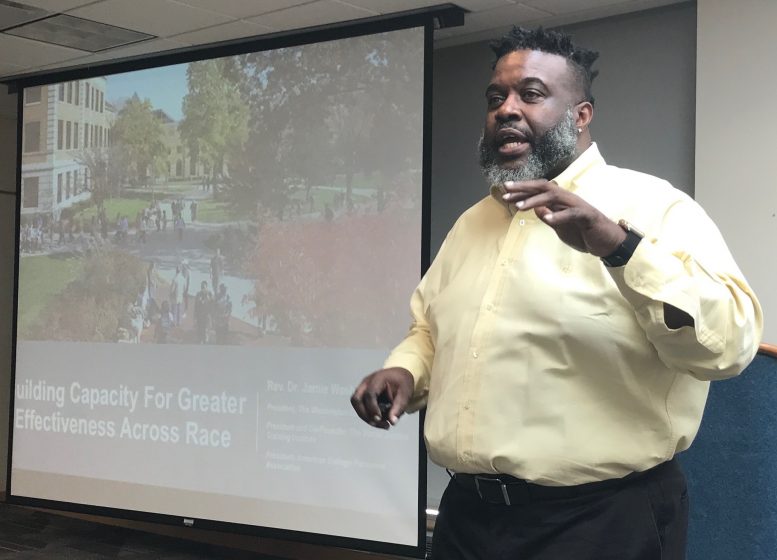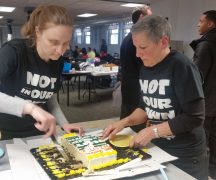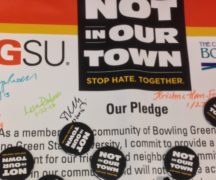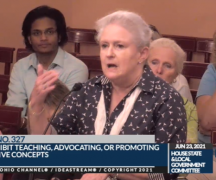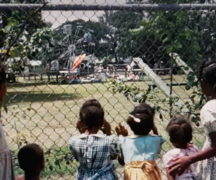By DAVID DUPONT
BG Independent News
Talking about race is hard.
That’s no reason not to have those conversations, Jamie Washington told a gathering of university faculty staff and students and community members last week.
Washington, a consultant on diversity, had been invited to Bowling Green State University by the Office of Residence Life. Washington, whose credentials include being an ordained minister, didn’t come pontificate. Instead he had those in attendance do the talking, to each other, one on one face to face with people they didn’t know. He was hoping to spark some genuine conversation.
Not the kind that happens in a meeting where people “perform” what they’re supposed to say, but the kind of exchanges that happen at “the meeting after the meeting” when people are free to share what they really think.
One of Washington’s few pieces of guidance for the conversations: “If you’re hearing a voice that says ‘you can’t say that,’ that’s what I need you to say. That will take us to engagement.”
Ana Brown, Coordinator for Diversity and Retention Initiative in the Office of Residence Life, said hosting speakers like Washington is a way of fulfilling the university’s mission statement.
Washington has been called one of the top consultants on diversity by The Economist. He currently serves as president of the American College Student Personnel Association.
Given the community’s partnership with BGSU in Not In Our Town, Brown said, it was natural to pull community members in. “A lot of folks want to have these conversations, but don’t know how. Attending sessions like these will make it more comfortable for these folks.”
She hopes to have more dialogues.
That’s a key, Washington said. Progress is only made through practice. If it’s a one-time speaker, or conversations are only held when there’s a crisis, that’s not enough. “It’s like going to the gym once a year.”
Leaders, whether campus, government, religious, or business, need to take responsibility for infusing this into the way they do their business every day and create opportunities for conversation.
Practice is needed because grappling with issues of race and diversity is difficult. Washington himself said he’s had to deal with his own issues as a male in dealing with female colleagues.
“We have to own that difficulty,” he said. That’s the context of these talks. “People move to the content before engaging the context. The context of diversity and race conversations is one of fear, concern, lack of trust, tiredness, weariness. Folks don’t know how to be in it. That’s the context, so let’s talk about the context.”
Only by creating enough space for these conversations will people move beyond the context to the content.
“Let’s not pretend it’s a valueless enterprise,” he said. “The value is we all matter. If we don’t share that, there will be a disconnect.”
Communities need to find their ways to a solution. “When I say solution, I mean ways … to get us to a vision of a more inclusive community and society where we all feel we’re valued, respected and can contribute to our full potential to the betterment of human kind.”

